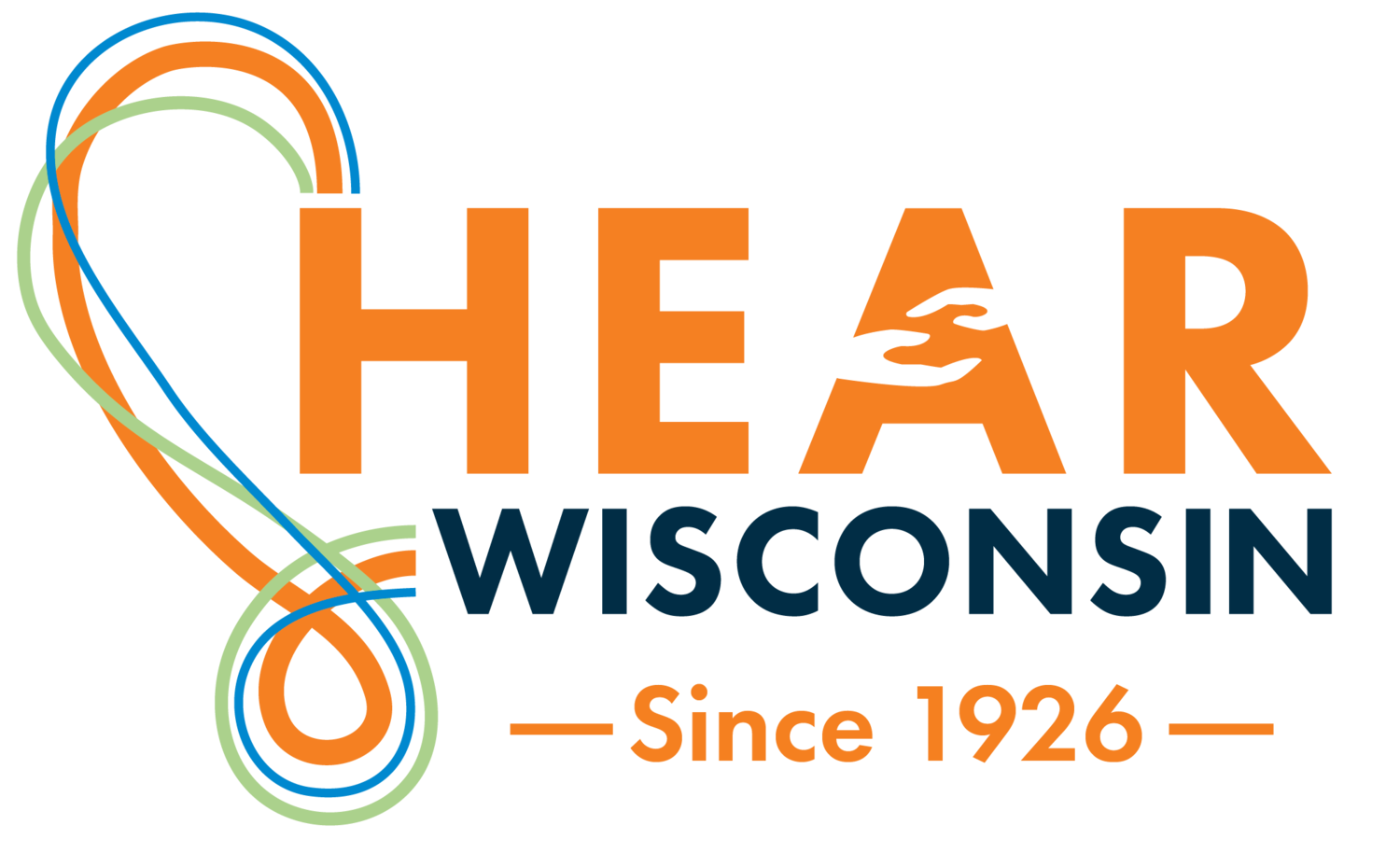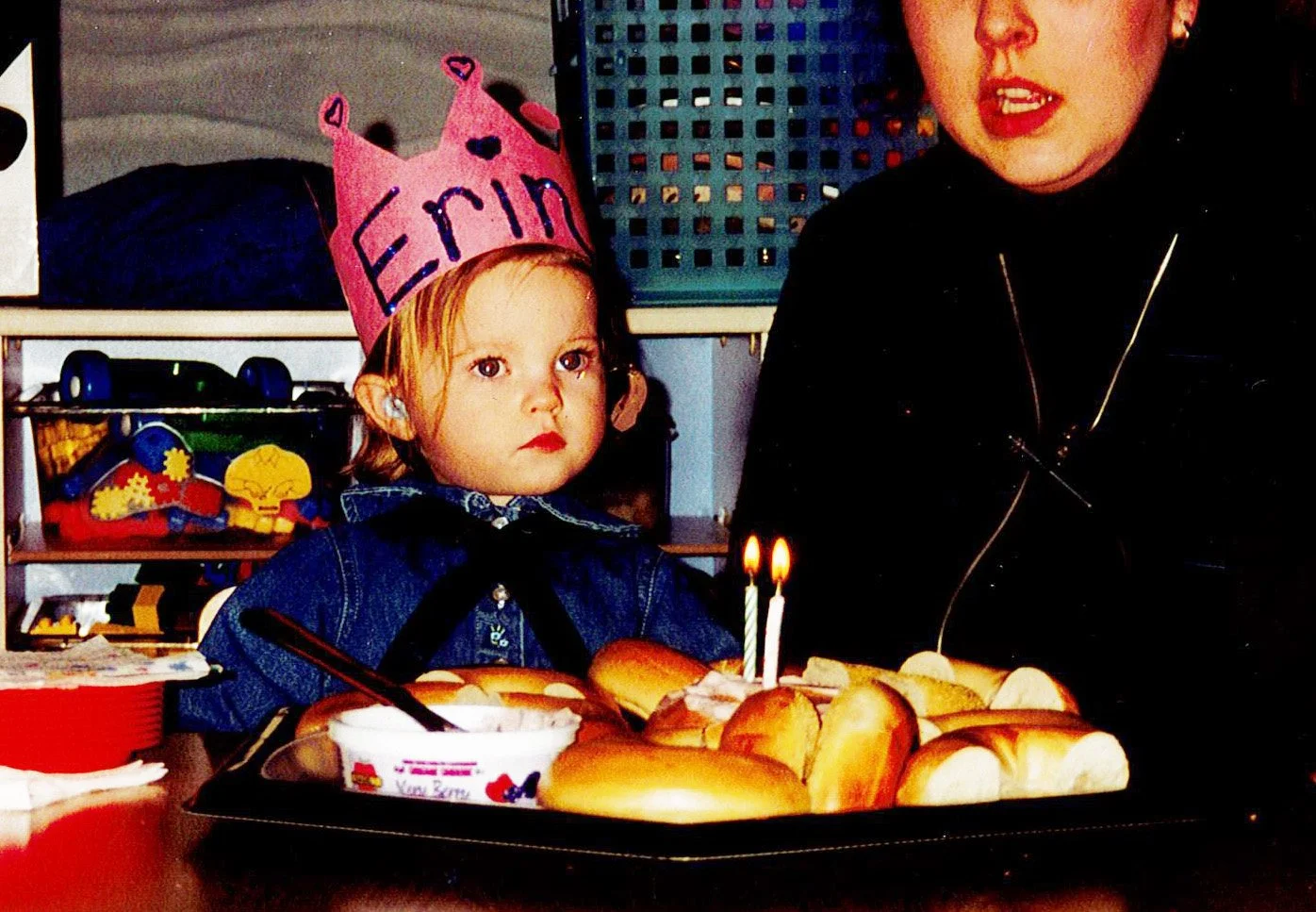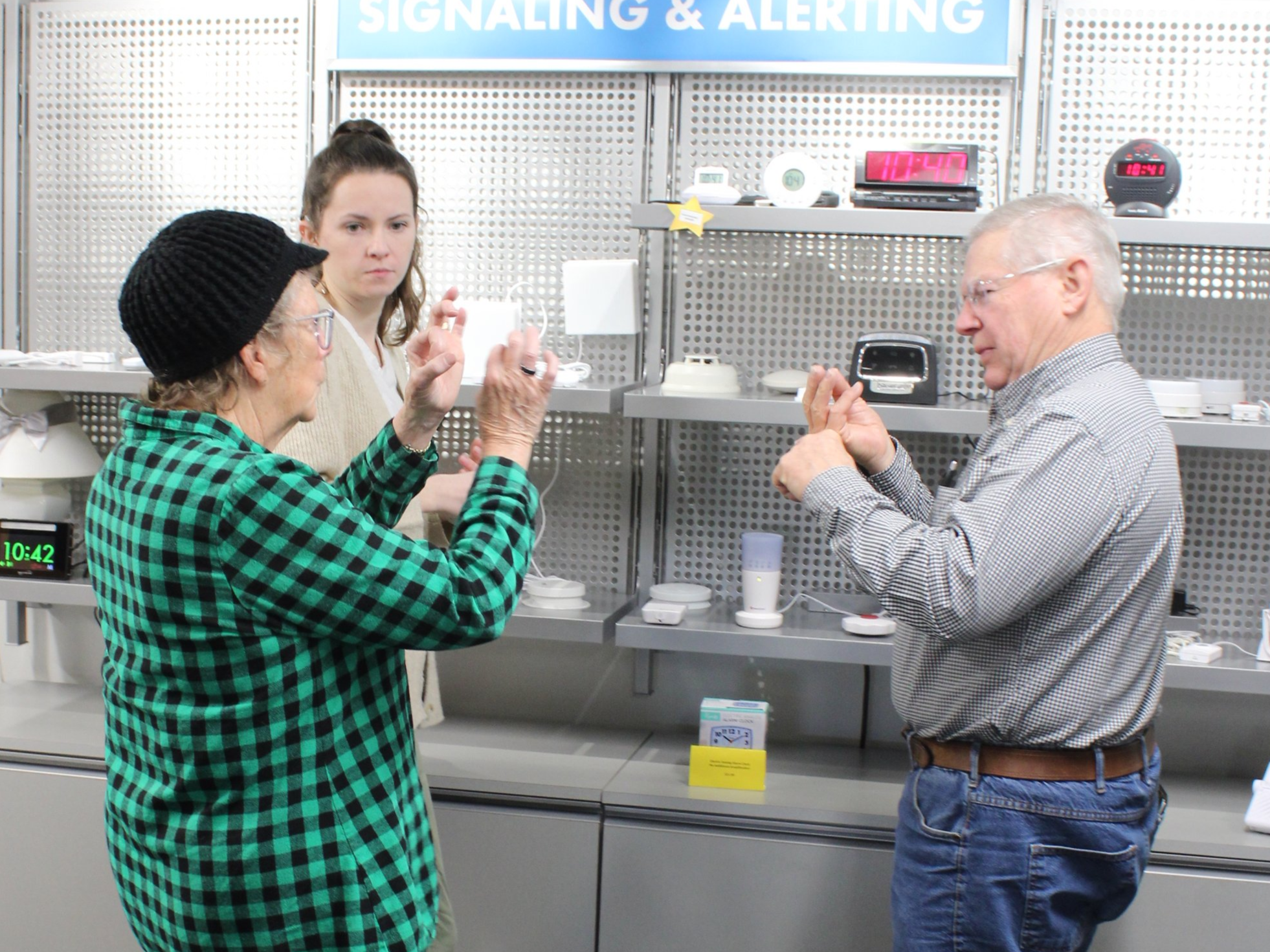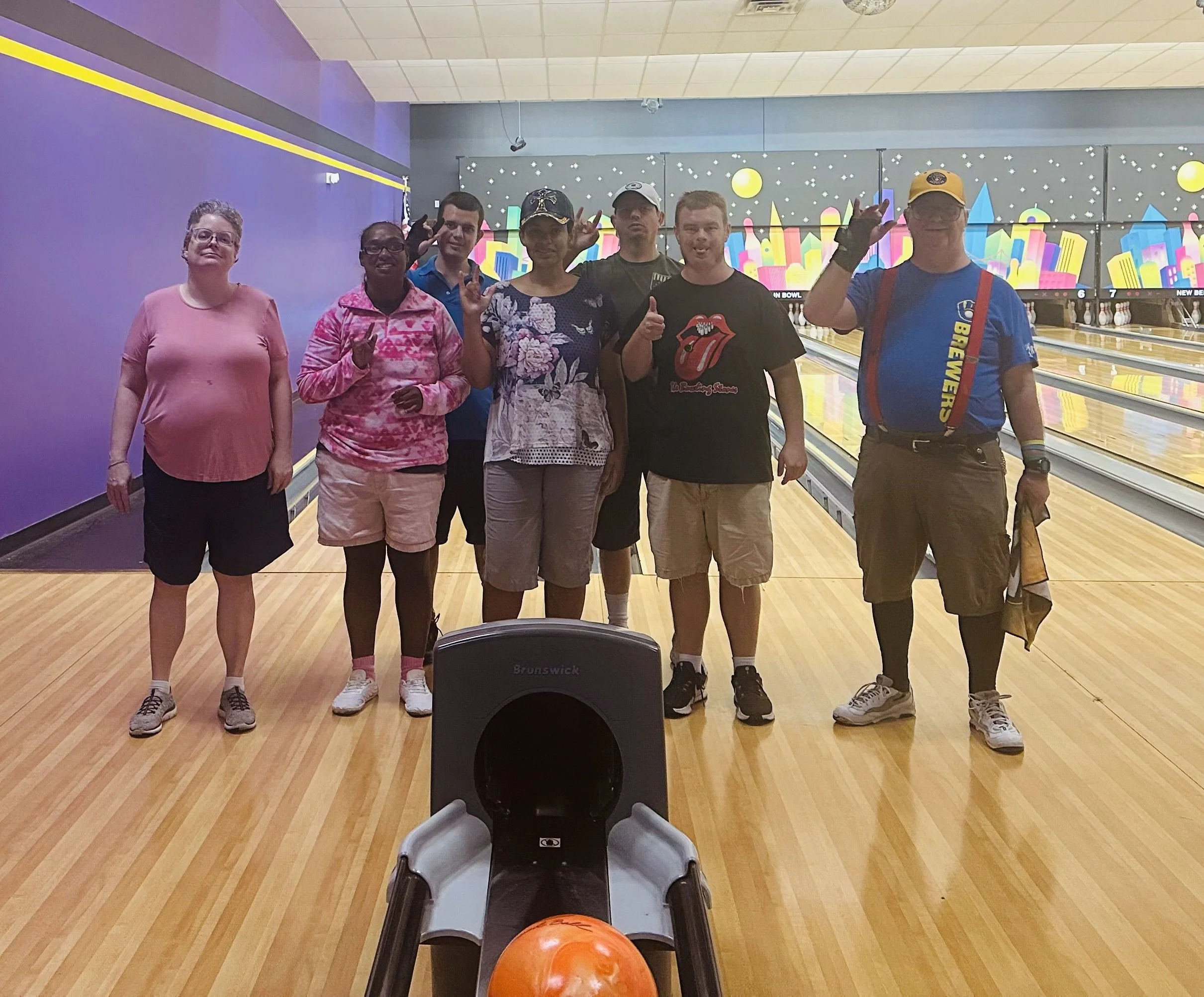AUGUST 2025
Erin’s Story –
I have a bilateral profound sensorineural hearing loss. It was first identified when I was about 10 months old. While my parents aren't sure if I was born with it, they believe it is genetic, especially since my younger sister was later diagnosed with a progressive hearing loss as well. At the time of my diagnosis, my hearing loss was moderate, but it gradually progressed to a profound level. I began using hearing aids around 12 months old. However, as my hearing deteriorated, the benefit from hearing aids became increasingly
limited. Eventually, I received cochlear implants at ages 7 and 9, which I have used ever since.
My parents first
became concerned
when I didn’t respond
to everyday sounds
like the doorbell, the
television, or even my
name being called.
They took me to
my pediatrician, who
performed basic
screenings and
promptly referred us
to Children’s Hospital
in Wisconsin. We were
incredibly fortunate,
over the years, my
parents met many
families whose
doctors were not as responsive, and who missed the opportunity for early testing and intervention. My parents often say, “We’ve always been so grateful that we were in the right place at the right time, receiving life-changing support.” From the very beginning, my family has been my biggest source of encouragement, teaching me how to advocate for myself, believe in my abilities, and navigate the world with confidence.
Because of my positive experience with cochlear implants and spoken language development, my parents chose a Listening and Spoken Language (LSL) approach for me. From ages 1 to 3, I received early intervention services at HEAR Wisconsin—then called the Center for the Deaf and Hard of Hearing. I participated in the Toddler Communication Group and received speech therapy. After my second implant at age 9, I returned for more services, including Auditory-Verbal Therapy, which helped me train my brain to process sound from both ears and use my devices more effectively.
Growing up, I was very successful using spoken language and my technology. But when I entered high school, everything shifted. I was introduced to the Deaf community, a life-changing moment that completely reshaped my identity. Through full immersion, I became fluent in American Sign Language, built strong relationships with Deaf and hard of hearing peers, and found a deep sense of belonging. That experience inspired me to pursue a career working with the Deaf/HOH community.
When I moved back to Wisconsin in 2023, my older sister told me about a job opening in the Kellogg Child and Family Program at HEAR Wisconsin. Today, I work as a Deaf/ASL Specialist in the Kellogg program and in the Assistive Technology Center. It’s incredibly rewarding to support Deaf and hard of hearing children, adults, and families in so many different ways. I feel proud to be Deaf and bilingual, able to connect with people no matter their communication preferences. One of the most meaningful parts of this journey is working alongside some of the same staff who supported me back in 2000–2002.
To now be part of the very organization that had such a profound impact on my life, it’s not just full circle; it’s truly a privilege.
Adult Day Service Story –
Bowling is one of the favorite outings with our Adult Day Services’ clients. Every month our coordinator schedules outings to various locations around the Greater Milwaukee area to promote socialization and recreational, financial, and communication skills.
Adult Day Services - Community Access for the Deaf addresses the special needs of adults with developmental disabilities who also have hearing loss. The goal is to help these individuals improve their independent living skills, communication skills, and social skills through small group activities and field trips within the community.





